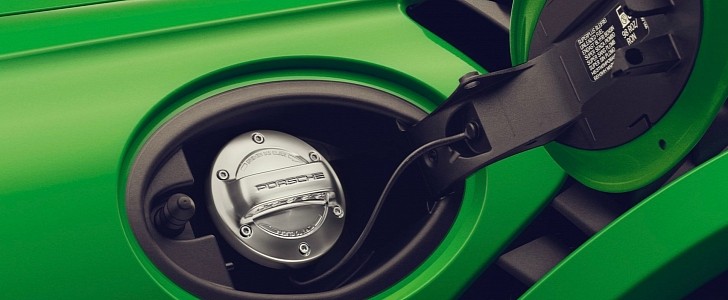Christian Lindner, the Finance Minister of Germany, isn’t a big fan of the EU's proposed ban on the sale of new gas- and diesel-fueled cars from 2035. The politician made it clear that Germany won’t agree to this legislation because a key part of the bid to slash emissions isn’t right.
“Synthetic fuels are a climate-neutral option for the internal combustion engine,” highlighted Linder. “We must preserve this for our jobs,” which is exactly what a finance minister would say in this particular situation. Not only would this decision save a plethora of jobs, but synthetic fuel presents many advantages: it’s efficient, sustainable, and strategic in the sense that it contributes to the decarbonization of personal and public transportation.
Rolls-Royce Holdings plc, the aerospace company rather than the automaker, makes a case for sustainable aviation fuel as well. Although we’re a long way from industry-wide adoption, Rolls-Royce intends to make its Trent and Business Aviation engines fully compatible with SAF.
Turning our attention back to personal vehicles, the yucky stuff coming out of the exhaust pipe isn’t as bad as the particle pollution produced by tire wear. UK-based testing company Emissions Analytics discovered that particle pollution from a modern vehicle’s tires is “around 1,850 times greater” than the particle pollution from the exhaust of a modern vehicle.
Even though Volkswagen and Mercedes-Benz have publicly supported the fleet-wide regulations that should come into effect in 2035, there are German automakers who aren’t convinced by the European Union’s plan.
BMW comes to mind, with big kahuna Oliver Zipse saying that demand for ICE vehicles will remain robust for many years to come. The Italian government, on the other hand, is working on a deal to exempt small-batch supercar combustion engines from extinction. Be that as it may, the Euro 7 standard that’s due in 2025 has forced Ferrari to target a sales mix of 40 percent EVs, 40 percent hybrids, and 20 percent ICEs by 2030.
Rolls-Royce Holdings plc, the aerospace company rather than the automaker, makes a case for sustainable aviation fuel as well. Although we’re a long way from industry-wide adoption, Rolls-Royce intends to make its Trent and Business Aviation engines fully compatible with SAF.
Turning our attention back to personal vehicles, the yucky stuff coming out of the exhaust pipe isn’t as bad as the particle pollution produced by tire wear. UK-based testing company Emissions Analytics discovered that particle pollution from a modern vehicle’s tires is “around 1,850 times greater” than the particle pollution from the exhaust of a modern vehicle.
Even though Volkswagen and Mercedes-Benz have publicly supported the fleet-wide regulations that should come into effect in 2035, there are German automakers who aren’t convinced by the European Union’s plan.
BMW comes to mind, with big kahuna Oliver Zipse saying that demand for ICE vehicles will remain robust for many years to come. The Italian government, on the other hand, is working on a deal to exempt small-batch supercar combustion engines from extinction. Be that as it may, the Euro 7 standard that’s due in 2025 has forced Ferrari to target a sales mix of 40 percent EVs, 40 percent hybrids, and 20 percent ICEs by 2030.
Die anstehende #EU-Entscheidung zu Flottengrenzwerten beim Auto ist leider nicht technologieoffen. Synthetische Kraftstoffe sind aber eine klimaneutrale Option für den global noch lange eingesetzten Verbrennungsmotor. Diese müssen wir für unsere Arbeitsplätze erhalten. CL https://t.co/NkPRx9VSHq
— Christian Lindner (@c_lindner) June 21, 2022







